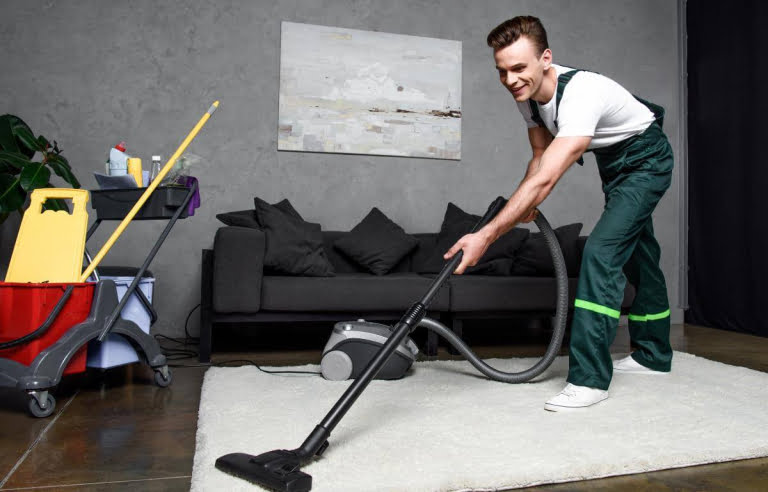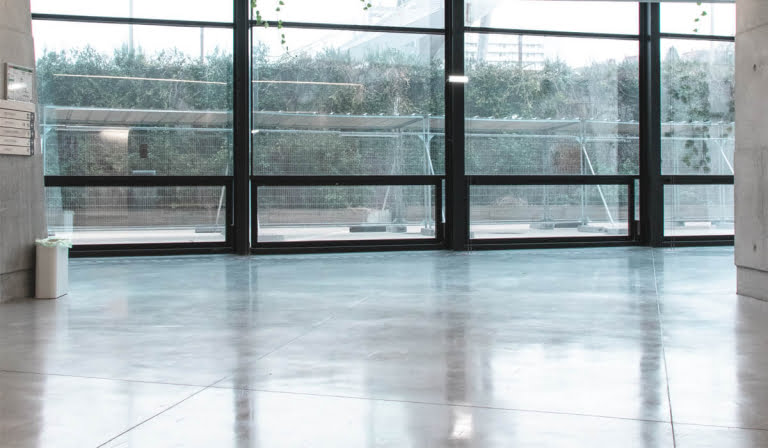Fat is ubiquitous in industries such as catering, food and processing. Greasy stains remaining on surfaces are difficult to remove, and due to irregular cleaning, it is often even impossible to clean them thoroughly. However, it should be remembered that these are industries where the basic requirement is to maintain proper cleanliness. The production, preparation and storage of food should take place in appropriate conditions in order to preserve not only its freshness and taste, but above all, the safety of its consumption.
Consequences of fat remaining on the surface
Grease in places where meals are prepared accumulates on furniture and kitchen equipment, as well as on walls and floors. You can not only notice it, but also feel it. In rooms where it has been present for a long time, a very unpleasant odor appears. Greasy stains can be easily removed immediately after they appear, otherwise traditional cleaning products may not be able to cope with such troublesome grease stains.
Specialized agents are recommended to remove grease and oil stains in the catering and industrial sectors, and at home, alternatives in the form of vinegar or baking soda are often sought. With such extensive use in the catering and food processing industries, they do not demonstrate the desired effectiveness.
Fast GAST , developed with these service industries in mind, has the ability to emulsify fat. It dissolves it even in the case of heavy dirt, burnt fat and food remains. It is certified by the state hygiene institute, which guarantees its safe use in rooms where food is prepared. It can be used on surfaces that come into contact with food products, remembering to rinse thoroughly after use.
To meet the absolute requirements
Cleanliness in the food and catering industry should not be just a “welcome guest”, but should be treated as one of the most important aspects that should be taken care of every day. Fast GAST is available in a convenient package with a sprayer ensuring convenience and precision of use. Thanks to any dosage, it is possible to reach hard-to-reach places even more effectively.
Apply the preparation to the surface to be cleaned and wait approx. 1 minute to dissolve the dirt. Wipe with a clean cloth and rinse with water, which is especially important in the case of surfaces in direct contact with food. Additionally, the agent removes unpleasant odors remaining, among others: after dried food remains.
A grease killer that removes difficult dirt, leaving no streaks or stains, safe for cleaning surfaces and meeting sanitary requirements. It can be used for kitchen hoods, countertops, tables, floors and walls, practical and multifunctional with a concentrated formula.
Greasy stains on upholstery elements
It is known that upholstered elements can also be found in kitchen arrangements. Although they do not have the same requirements regarding cleanliness as kitchen ones, they also have problems with dirt. Of course, upholstery dominates mainly in the bedroom or living room, but it is also used to finish various decorative elements, chairs and car seats. The problem is the upholstery dirt that is difficult to remove, i.e. greasy stains. The Clinex brand offers cleaning products that will professionally deal with the above-mentioned dirt. These agents act comprehensively and thoroughly, and at the same time protect and preserve the fabric.
The cleaning process does not only depend on treating greasy stains with a cleaning agent. Cleaning depends on many factors. Upholstered elements are not necessarily made of a uniform material, and not every upholstery material requires identical preparations for cleaning. And so leather elements require different care than synthetic materials. Therefore, before cleaning, it is worth being aware of what grease does to the upholstery and how quickly you should act.
It may seem that fats do not harm leather components. Some people even believe that fat helps preserve it. Unfortunately, this is not entirely true. Fats, depending on the type, react differently with the skin. Some will moisturize it a bit and make it shiny, but they may leave grease on the surface, dirtying clothes and everything around it. Other fats even have properties that destroy skin and leather-like materials, so it is clear that fat poses a threat to them.
Materials made from natural fabrics are also sensitive to greasy stains. Fat, penetrating the material, changes and weakens its internal structure. Such a stain degrades the natural color, and delay in cleaning makes it impossible to remove it. Therefore, you should act as quickly as possible and use professional cleaning products.
Greasy stains on plastic and painted elements
Certainly, greasy stains on plastic or painted metal are easier to remove. However, they should not be treated too lightly, as fats, especially refined ones, can be very harmful to artificial materials. Elements made of quite thin plastic are susceptible to this, and the fat can even melt into it.
Plastics from the East are in the worst situation. They are very thin and contain many additives that make the plastic particularly susceptible to fats. What should you do if such an element has already been stained with grease? Professional and gentle products should be used. Clinex excels at this. The cleaners are tough on greasy stains and are gentle on plastic.
The situation is no different when it comes to painted plastics and metal. Some fats, when used regularly, cause fading of the paint, porosity of the surface layer and progressive aging of the coating. Therefore, they do not remain neutral for metal, which is not indestructible. Metal in constant contact with fats regularly deteriorates its appearance and aesthetics. Some fats slowly eat into it, just like carelessly selected cleaning products. Therefore, cleaning agents should be carefully selected for both metal and plastic elements.






